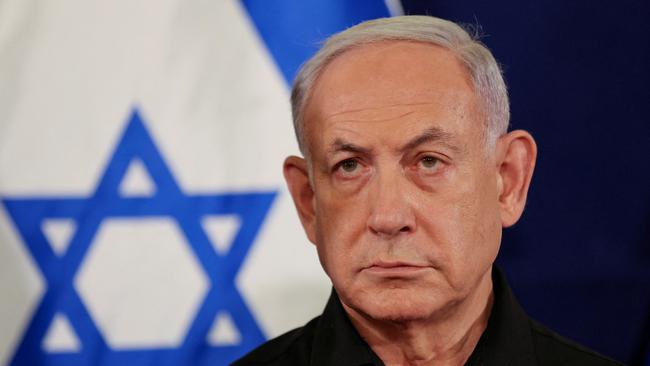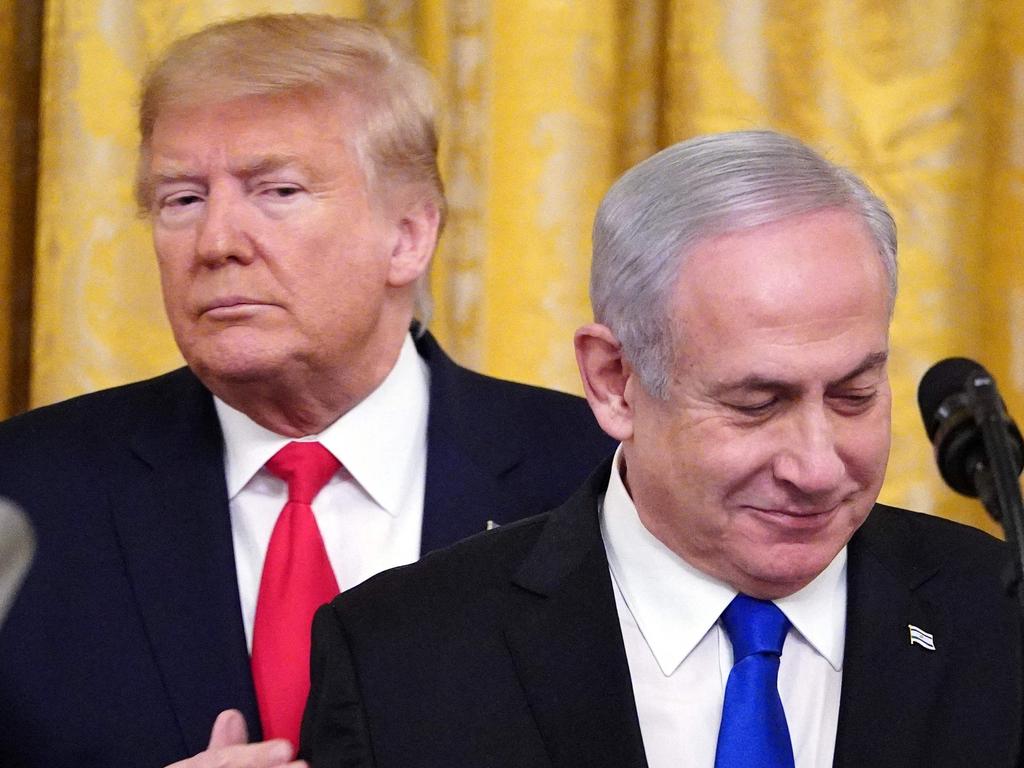‘Final stages of truce deal’: hopes rise for imminent ceasefire
Benjamin Netanyahu is meeting with hostage negotiators and security chiefs to finalise a deal amid concerns Hamas may delay an agreement

A ceasefire deal between Israel and Hamas could be signed as early as Wednesday (AEDT), with Hamas reportedly transferring some Gaza hostages “to safe places” ahead of the expected truce.
Israeli Prime Minister Benjamin Netanyahu is meeting with hostage negotiators and security chiefs to finalise a deal, with his office telling hostage families both sides are discussing the final details for an agreement, The Times of Israel reports.
However Israeli media reports the signing of the agreement has been delayed amid further negotiations between the two sides, with one sticking point the area in the enclave where Israeli Defence Forces would continue to be deployed.
“The ball is now in Hamas’s court,” US Secretary of State Antony Blinken said earlier. “If Hamas accepts, the deal is ready to be concluded and implemented.”
Negotiators working with Israel and Hamas have ironed out the terms of an agreement, but are still waiting for the militant group to give a final signoff on the agreement, The Wall St Journal reports.
The delay raised concerns that the last-ditch effort could collapse as previous rounds have as a deadline passed without Hamas responding to the agreement.
Israeli officials said all significant issues had been ironed out and that the agreement was at a final stage before Hamas stopped responding.
“Progress in the negotiations is ongoing,” a Hamas official told the WSJ. “However, certain specific but crucial issues are currently being discussed to be agreed upon.”
In a meeting with representatives of the hostages’ families earlier on Tuesday, Mr Netanyahu reportedly told them that a deal was “days or hours” from being finalised.
“We are waiting for Hamas’s [positive] response and then it will be possible to start [implementation] immediately,” he said according to Israel’s Channel 12 TV.
Qatar’s foreign ministry said the sides were at the “closest point” yet to a deal, with a spokesman telling reporters the talks were “at the final stages,” but cautioning that “until there is an announcement … we shouldn’t be overexcited about what’s happening right now.”
Meanwhile US Secretary of State Antony Blinken laid out his roadmap for post-war Gaza on Tuesday (AEDT), proposing international security forces and temporary UN leadership to stabilise the enclave. But in a speech to the Atlantic Council think-tank in Washington, Mr Blinken said Israel in turn must agree on a pathway to a Palestinian state.
The Saudi TV networks Al Arabiya and Al Hadath reported that “the transfer of prisoners holding American citizenship in Gaza to safe places” had begun in preparation for the final agreement and prisoner swap.
The broadcasters reported that Hamas had already begun co-ordination with the Red Cross regarding the transfer of the hostages.
In his speech, Mr Blinken acknowledged that Hamas “cannot be defeated by a military campaign alone.”
“Without a clear alternative, a post-conflict plan and a credible political horizon for the Palestinians, Hamas – or something just as abhorrent and dangerous – will grow back,” he said.
In line with his calls since the start of the war, Mr Blinken said that Gaza should be under the control of the Palestinian Authority – which now holds shaky, partial control of the West Bank and has been repeatedly undermined by Israel.
Acknowledging the limitations of the Palestinian Authority, Mr Blinken said an unstated number of countries have offered to send troops and police to post-war Gaza.
He said that the “interim security mission” would include both foreign forces and “vetted Palestinian personnel.”
“We believe that the Palestinian Authority should invite international partners to help establish and run an interim administration with responsibility for key civil sectors in Gaza, like banking, water, energy, health,” Mr Blinken said.
The Palestinian Authority would co-ordinate with Israel and the rest of the international community, which would be asked to provide funding.
A senior UN official would oversee the effort, which would be enshrined by a UN Security Council resolution, Mr Blinken said.
“The interim administration would include Palestinians from Gaza and representatives from the PA selected following meaningful consultation with communities in Gaza,” Blinken said.
On Monday (local time), US President Joe Biden declared “we’re at the brink of a proposal” in a speech defending his foreign policy legacy.
The heightened expectations of an imminent breakthrough come days before the inauguration of Donald Trump and after the US president-elect said there would be “hell to pay” if the hostages were not released before he takes office on January 20.
Mr Trump repeated his threats of “trouble” if a deal was not reached, telling conservative US broadcaster Newsmax TV: “We are very close to getting it done. They have to get it done.
“If they don’t get it done, there’s going to be a lot of trouble out there – a lot of trouble like they have never seen before.”
The ongoing conflict has reshaped the landscape of the Middle East and was initiated by Hamas terrorists in their October 7, 2023 attack on the Jewish state, igniting a ferocious response from Israel.
The military campaign waged by Mr Netanyahu is estimated by Gaza’s health ministry to have killed more than 45,000 Palestinians – although no distinction is drawn in these figures between civilians and fighters.
The terms of the deal would see Hamas release 33 humanitarian hostages including children, women, female soldiers, the elderly and the sick, some of whom are dead.
The Times of Israel reported that if the transfer were successful, it would trigger a second phase whereby, on the 16th day of the agreement, negotiations would begin to free the remaining captives, including male soldiers and men of military age.
However, Israel would not return the body of assassinated Hamas leader Yahya Sinwar.
Israeli officials were also crediting Mr Trump’s threats of escalation as a key factor in Hamas’s willingness to make concessions and get a deal over the line.
The president-elect has not explained what actions he would take in the event of a deal not being finalised by his January 20 deadline, but incoming vice-president JD Vance said the new administration would help Israel “knock out” Hamas if that were the case.
Mr Biden spoke to Mr Netanyahu on Sunday to discuss the ceasefire negotiations in Doha.
The White House said the proposed deal was based on last May’s arrangement described by Mr Biden and endorsed by the UN Security Council.
Mr Biden and Mr Netanyahu also discussed the transformed situation in the Middle East following the ceasefire in Lebanon, the collapse of the Assad regime in Syria, and the weakening of Iran’s regional power.
National Security Adviser Jake Sullivan said “a deal can get done this week” and that he was more optimistic “because the gaps have fundamentally narrowed down”.
Mr Sullivan chalked up the progress to Israel achieving its military objectives in Gaza, while Hamas had gone on to suffer “catastrophic losses”.
“When you put those two factors together, we believe that the time is right to get a deal and to have to close,” he said.
However, Mr Netanyahu could still face obstacles in securing support for the deal among the far-right elements of his government.
Finance Minister Bezalel Smotrich, who heads the Religious Zionism party, has already warned that his party “will not be part of” the emerging deal, which he said would be “a catastrophe for Israel’s national security”.
There were also Israeli media reports that National Security Minister Itamar Ben Gvir could resign if the deal was agreed to.





To join the conversation, please log in. Don't have an account? Register
Join the conversation, you are commenting as Logout